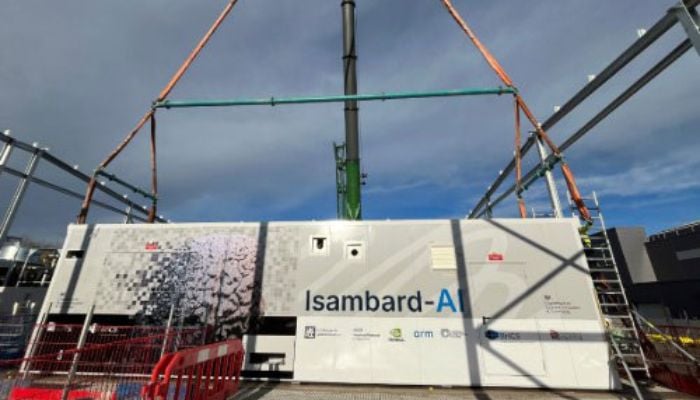
The UK's most potent supercomputer, Isambard-AI, was formally unveiled in Bristol, marking a major advancement in the country's technological prowess.
The device was created by the University of Bristol with government support and is positioned to be crucial in fostering innovation and addressing difficult problems.
With the official launch of the supercomputer, Technology Secretary Peter Kyle demonstrated the government's dedication to increasing its artificial intelligence (AI) capabilities.
As a component of the UK's AI Research Resource, Isambard-AI will work alongside a comparable device called Dawn at the University of Cambridge.
Isambard-AI can process large datasets at previously unheard-of speeds thanks to its thousands of processing units.
Researchers will be able to concentrate on important topics like cutting NHS waiting lists and creating creative responses to climate change as a result.
Additionally, a wide range of public sector initiatives will be supported by the supercomputer's capabilities.
In an effort to boost local economies and broaden the application of AI across the country, the government has revealed plans to invest in AI Growth Zones in Scotland and Wales.
Notably, earlier this year, Isambard-AI was used in a medical project to aid in the development of a vaccine.
Nvidia's European vice president, David Hogan, described Isambard-AI as a "truly transformational machine" that is the first step in a larger AI strategy.
More investment in supercomputers is anticipated to be crucial to the UK government's objective of making the nation a leader in AI development.
In order to support this endeavour, the government intends to train 7.5 million people in economics and one million students in artificial intelligence over the next several years.
Isambard-AI, which ranks eleventh in the world in terms of processing power, is expected to boost the public AI computing infrastructure in the UK and spur innovation across a range of industries.
















